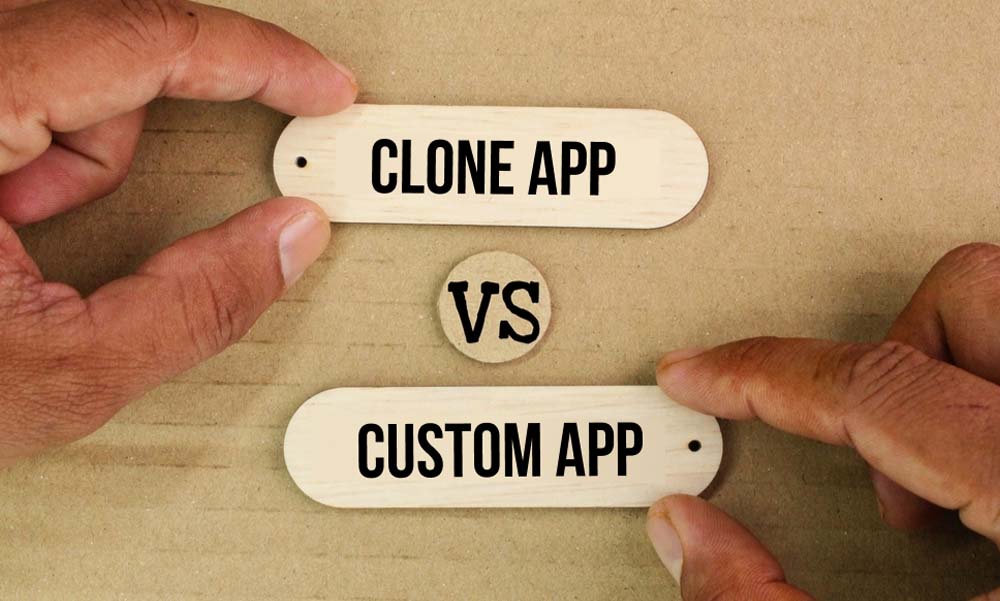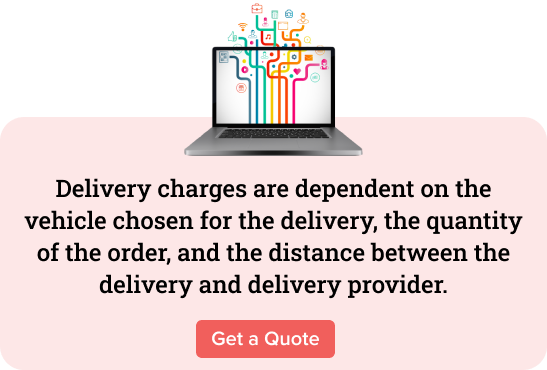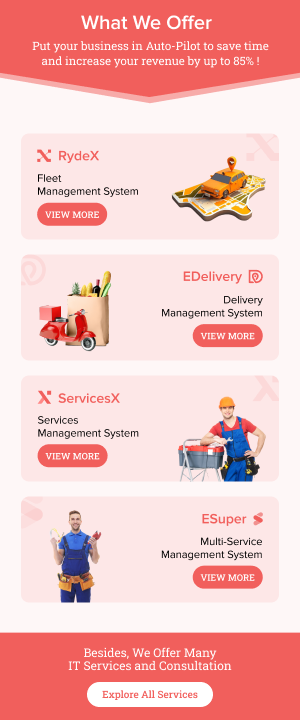
The most common confusion in the on-demand economy is the selection of the development process. Two major choices are clone apps and custom apps. Here, we have compared and discussed all factors to make it easy for you to decide between Clone app vs. Custom app
Both are great options, and choosing either of them can be a dilemma. Ever since the on-demand economy placed itself as a stronghold in the market, many forms of app development methods developed.
While some companies were busy customizing the apps for their clients, other companies built clones of the on-demand economy’s undoubted leaders and changed the whole app development market.
What Are The Custom Apps?
If you are a startup hiring app developers and designers to create a customized app based on specific business requirements, then you are probably building a custom app.
Custom apps are built by designing and developing an app structure from scratch, which takes more time, effort, and expenditure. But, if you have specific requirements, then it can be worth it.
What Is A Clone App?
Clone apps are ready-made solutions that can be applied to your business. They have a pre-built architecture and code ready that is just modified for your business requirement, app creation can be done faster, and deployment takes less time.
Most app development companies and firms are in the business of custom clone apps that are customized for clients’ specific requirements, and yet they are already designing apps following the code of market leaders.
Entrepreneurs can look for a clone app development that can build a solution for them with business-specific features and functionalities. The app can be customized to help you thrive in the competitive world.
App Clones That Are Quite Popular:
-
What is a taxi clone app?
-
Delivery Services App Clone
-
Home Service App Clone
The success of Uber as a disruptive ride-hailing service that became the pioneer of the on-demand economy inspired many to develop app clones based on the Uber model. The clone provides all the features and functions similar to the Uber app. This is when Elluminati, a leading app development firm and technological solution experts, designed an app solution based on the taxi app clone called ”RydeX”.
“RydeX” solution provides a full stack of technology solutions based on the Uber model. It provides dedicated apps on Android and iOS platforms for users and drivers to be connected instantly for online taxi booking and other ride-hailing services. It also provides excellent control and management solutions for entrepreneurs and key business stakeholders.
The on-demand delivery business is one of the most thriving industries around the world. It has become a stable part of the lifestyle, whether it is food, groceries, liquor, or other products. Building a well-served delivery application is necessary for the growing competition.
It inspired us to develop an “E-Delivery” service package that was based on the delivery services app clone. This package provides all the necessary digital tools to conduct an online food delivery business successfully. What we at Elluminati did differently was to expand the model to include more than just food service.
Our “E-Delivery” package offers dedicated apps for users and stores that provide the product with an app for service providers to manage the delivery orders. This stack also provides a centralized console for management and control over the business.
The service paradigm has been expanded for delivery of food to products like Grocery, flowers, medicine, water bottles, alcohol, and even marijuana (in countries where marijuana has been legalized)
After the last big recession that hit the United States, TaskRabbit – a home service startup, started running errands for people’s tasks and jobs. Its model soon developed into an on-demand home services market, and today, TaskRabbit’s business model is considered one of the market leaders in home service businesses.
This ravaging success of on-demand home service apps inspired the creation of ServicesX – an all-in-one app solution for all home service tasks and jobs. This solution provides app-solutions with services for a handyman, such as cleaning, repair, car washing, doctor’s consultation, plumbing, massage, etc., tasks.
Share your business ideas with us, and we will give you the most reliable IT services and advanced and market-friendly technologies.
Clone App vs. Custom: Who to Choose?
We can measure the difference between these two app scripts based on the three following parameters.
-
Costing
-
Development Time
-
Reliability And Scalability
As far as cost is concerned, there is a clear winner in clone apps. As clone apps are pre-built code, they do not require extra development costs, nor do startups need to hire a team of developers to develop these apps from scratch. A mobile application development firm can help these startups by providing a technology stack with excellent technical support for app development.
This is quite simple, as custom apps have to be built from scratch and need more testing and prototyping, which takes more time for development and deployment than clone apps.
The reliability of the clone apps is far higher as they are pre-built, keeping in mind the architecture and end-to-end requirements of different projects for which they would be used. On the other hand, custom apps are far better at scaling as they are built from scratch, and these clone apps can be customized for maximum scalability based on the business model.
Closing the tab:
So, here we are at the intersection of on-demand clone apps and custom apps, and it is to you to decide which way to go. There is no doubt that clone apps are better at almost all the parameters, but the usefulness of custom apps can’t be ruled out.
Businesses and startups having tight budgets and stricter development schedules often choose the clone apps as they are far more rapid to develop, and the core idea behind the startup is quickly placed in the market, rendering the firms to concentrate on the development of core product and focus more on the marketing activities.
So, if you are a startup looking to disrupt the on-demand market, you can contact us to build an on-demand application that suits your business needs. Share your business ideas today, and let’s get started to build a solution that suits your business needs and helps you grow in the most competitive world.











